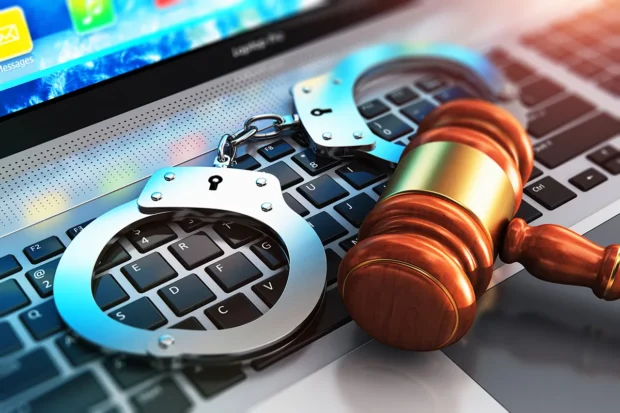Technology is the development of concepts and procedures typically incorporated into the accomplishment of certain activities, streamlining the process, and improving the accuracy of outputs. The products and creations of science are technologies. Technology’s primary goals are to prevent problems, address current ones, and improve upon already-existing solutions. Technology has incalculable importance. Technology is a product or outcome of science since it is created via scientific advances.
All facets of the business and way of life have been impacted by technology, and the legal profession is not an exception. Since it would be virtually difficult for humanity to revert to the Stone Age, technology is increasingly becoming vital and inescapable.
To address more issues more quickly and easily, society would want to improve, alter, and upgrade the present technology. Though technology development has certain drawbacks, they are much outweighed by how much it has improved lives.
The Legal Sector’s Use of Technology and Innovation

The legal profession has also been impacted by technology. Technology is mentioned explicitly concerning the administration of justice and legal practice. Technology facilitates simple performance and procedures and has a similar impact on the legal profession. This may be observed in how the legal industry uses ICT tools and equipment as well as other technical gadgets. For instance, the court system today uses the frontloading system to file processes.
All parties using the frontloading system must type, print, submit, and share their procedures. Using computers and printers, which are technical devices, makes typing and printing feasible and easier. The typewriter was a more labour-intensive tool before computers and printers were invented; it is slower to use, more challenging to use and produces less accurate results.
This is where technology has modified solutions, especially in the realm of law, where it has had a favourable impact. There are several additional relative technological contributions to the legal sector, and it is important to emphasize these contributions as they provide support for and proof of the applicability of the technology in law.
Roles, Benefits, and Importance of Technology in Law
The following are some legal applications of technology:
Promoting Fair Hearing

Using a computer and printer from the present era makes the preparation of procedures simpler and quicker. With Y being simpler and faster, parties have plenty of time to plan and file their methods. In addition, the frontloading mechanism slows the rate at which parties ambush one another. In cases where mobility is restricted, attorneys from all sides may now readily communicate with one another and the court registrars, thanks to information technology and media development. Contact https://www.calgaryduilawyer.ca/ today for Fair Hearing.
Trials are administered more quickly and easily
The days of attorneys presenting their cases orally in court while the court recorded every word they said are long gone. The invention and widespread usage of typewriters and computers for typing are still responsible for this evolution.
For instance, motions are more often submitted and documented than delivered verbally in court and recorded. In addition, judges utilize computers rather than the more laborious typewriter to produce decisions and judgments.
Another advancement made necessary and achievable by technology is the introduction of E-Proceeding. The system is designed to be time-saving. During the spike age of covid-19, e-proceeding reached its full potential and benefits.
Reports can be quickly evaluated

Thanks to technology, court reports, decisions, and judgements are now accessible online. First, buyers may order Law Reports online at their convenience.
Reports can now be evaluated online in a legible manner in some jurisdictions (that is, in some nations). This is advantageous to those in the legal profession in particular and other members of society who might be interested in evaluating court findings. Additionally, this aids in the evolution of the law.
Evidence Establishment
Technology development has made it simpler to gather evidence to support a case. The concept of electronic proof is therefore required.
Technology may now be used to produce evidence which is admissible in court. Evidence that is created electronically is always convincing and coherent. It aids the court in delivering transparent justice.
Court and office congestion reduction
Speedier trials and simpler administration of justice are ensured when technology filing mediums are used, such as e-proceeding. This relieves congestion in the courts and offices.
Lawyer-client and registrar-to-registrar communication
Information exchange between attorneys, clients, and court registrars is facilitated by technology.
Documentation

Technologies can be used to document and back up documents, including court judgments, case files, affidavits, wills and testamentary dispositions, agreements, and more, reducing the risk associated with the simple physical recording.
Accounting and finance
The legal sector is a money-making one. Software may be used to create and track records of income revenue, profits, losses, and other financial transactions being carried out in addition to or instead of keeping human records. The court and legal firms can use this technology.
Reminder Software
Law firms can use software to set reminders for cases they handle in court. This prevents a great deal of chaos from happening.
Greater transparency
People used to have a negative perception of attorneys because of the way they complicate what appear to be simple issues for their clients. Clients now question every lawyer they encounter as a result.
However, implementing technological solutions for legal practice administration can prevent this predicament. The answer is the development of a marketplace where customers may interact with the top legal experts in real-time and learn about fundamental legal concepts. Transparency in the legal industry would result from this. Incorporating client testimonials into the legal industry will help to rebuild client confidence.
Collaboration among attorneys

With only one document, attorneys may now efficiently work on cases in parallel and alternately. In order to save travel and paper costs, attorneys from various regions can collaborate remotely on issues using tools like Google Docs, Microsoft Teams, Slack, etc. As a result, attorneys may now provide legal services to a broader range of customers, regardless of their location.
Conclusion
In essence, technology reduces the input of physical labour from people. However, it needs the intelligence and mental power of people. It is impossible to overstate the importance of technology in the legal profession since it has significantly contributed to the law’s rapid development.




